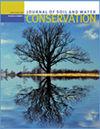确定以生态为重点的农业系统的边界和概念框架
IF 2.6
4区 农林科学
Q2 ECOLOGY
引用次数: 0
摘要
农业系统发生了重大演变,从工业化前的有机管理过渡到高度机械化、化学密集型和基因工程常规作物生产方法。这种转变导致了负面的生态后果,如土壤退化、养分污染和生物多样性丧失。为此,农业部门正在转向恢复性和可持续的生产方式。为了在生产目标和环境保护之间取得平衡,人们采用了各种农业系统,每种系统都有不同的原则、实践、标准和结果。当前的农业体系包含多种方法,如传统农业、保守农业、生物动力农业、农业生态农业、精准农业、气候智能农业、再生农业、有机农业、再生有机农业和可持续农业(Muhie 2022)。传统农业战略主要侧重于提高生产率,而其他专门战略的实施则是为了应对气候变化、土壤退化和水资源短缺等其他挑战。这种多样性固然有益,但由于标准模糊、术语重叠,也给理解和应用带来了挑战,影响到消费者、生产者、决策者、农业专家和金融机构等利益相关者。例如,虽然再生农业(RA)以有益于土壤健康而闻名,但对新西兰再生农业与传统畜牧业的财政评估显示,再生农业的生产率下降,二氧化碳(CO2)排放量上升(Howarth 等,2022 年)。同样,将有机认证扩展到水耕法和水生法农场扩大了有机农业的概念,引发了对以土壤为中心的有机原则的质疑(法律信息研究所 n.d.;Di Gioia 和 Rosskopf 2021)。此外,在跨国公司的支持下,政府认可的气候智能型农业(CSA)理念的采用也引起了农民对潜在错位的担忧......本文章由计算机程序翻译,如有差异,请以英文原文为准。
Defining boundaries and conceptual frameworks for ecologically focused agricultural systems
Agricultural systems have significantly evolved, transitioning from preindustrial organic management to highly mechanized, chemically intensive, and genetically engineered conventional crop production methods. This transformation has led to negative ecological consequences, such as soil degradation, nutrient pollution, and biodiversity loss. In response, the agricultural sector is now pivoting toward restorative and sustainable practices. The pursuit of achieving a balance between production goals and environmental preservation has led to the adoption of various agricultural systems, each having distinct principles, practices, standards, and outcomes. Current agricultural systems encompass a wide range of approaches, such as conventional, conservative, bio-dynamic, agro-ecological, precision, climate-smart, regenerative, organic, regenerative-organic, and sustainable agriculture (Muhie 2022). Conventional farming strategies focus primarily on enhancing productivity, while other specialized strategies have been implemented to address additional challenges like climatic change, soil degradation, and water scarcity. While this diversity can be beneficial, it also creates challenges in comprehension and application due to ambiguous standards and overlapping terms, impacting stakeholders such as consumers, producers, policymakers, agricultural experts, and financial institutions. For example, while regenerative agriculture (RA) is known for soil health benefits, a fiscal assessment of regenerative against traditional livestock farming in New Zealand revealed a decline in productivity and a rise in carbon dioxide (CO2) emissions (Howarth et al. 2022). Similarly, expansion of organic certification to hydroponic and aquaponic farms broadens the concept of organic farming, raising questions about soil-centric organic principles (Legal Information Institute n.d.; Di Gioia and Rosskopf 2021). Furthermore, the adoption of government-endorsed climate-smart agriculture (CSA) philosophies, when backed by multinational corporations, have raised concerns among farmers about the potential misalignment …
求助全文
通过发布文献求助,成功后即可免费获取论文全文。
去求助
来源期刊
CiteScore
4.10
自引率
2.60%
发文量
0
审稿时长
3.3 months
期刊介绍:
The Journal of Soil and Water Conservation (JSWC) is a multidisciplinary journal of natural resource conservation research, practice, policy, and perspectives. The journal has two sections: the A Section containing various departments and features, and the Research Section containing peer-reviewed research papers.

 求助内容:
求助内容: 应助结果提醒方式:
应助结果提醒方式:


